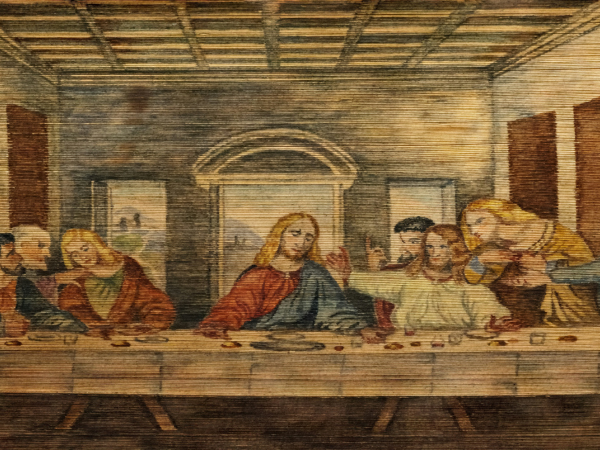THE CATECHISM OF THE Catholic Church teaches that “when Jesus prays, He is already teaching us how to pray…Like a wise teacher, He takes hold of us where we are and leads us progressively toward the Father” (CCC #2607).
Throughout the Scriptures, Jesus unveils His Heart before His disciples, revealing His desire for them to know the Father sent Him. Before raising Lazarus from the dead, He prayed, “Father, I thank you for hearing me. I know that you always hear me, but because of the crowd here, I have said this, that they may believe that you sent me” (Jn. 11:41-42).
The disciples witnessed Jesus praying aloud during the Last Supper (cf. Jn. 14-18) and in the garden of Gethsemane (cf. Mark 14:36). Throughout these moments, Jesus reveals His Heart as the Beloved Son who always loves the Father. He desires to draw all His disciples, including us today, into the intimate communion of the Trinity through the power of His Holy Spirit.
As we enter into Holy Week, the Church invites us to reverently listen to the last seven words of Jesus, knowing that each syllable cost Him greatly. Jesus struggled to breathe as He died on the cross, yet He pulled Himself up against the nails and spoke to His mother, His beloved disciple John, the good thief and to His Heavenly Father. We, His disciples, are invited to witness Jesus’ prayer to His Father and be drawn into His prayer so that it becomes the prayer of our hearts. When we hear the last words of Jesus, how does our hearts respond? What do we want to say to Jesus in return?
“Father, forgive them, they know not what they do” (Lk. 23:34). Jesus prays for us by asking the Father to forgive us for rejecting His love. There is no good reason to sin and turn away from God’s love, and Jesus advocates that surely, we do not know Who we are rejecting. His petition for mercy moved the “good thief” crucified with Him to seek the forgiveness Jesus prayed for.
“Amen, I say to you, today you will be with me in Paradise” (Lk. 23:43). Jesus offered these words to the repentant thief and promised him what is available to all His disciples: a place in Eternity. Earlier that evening, during the Last Supper, Jesus revealed this promise, “And if I go and prepare a place for you, I will come back again and take you to myself, so that where I am you also may be” (Jn. 14:3).
“Woman, behold your son…Behold, your mother” (Jn. 19:26-27). Jesus then sought the security of some of His most treasured relationships on earth: His mother and the beloved disciple, John. As His disciples, we are also invited to take Mary into our lives and trust her to love us as her dear children.
“My God, my God, why have you forsaken me?” (Mk. 15:34) For many, this is the most disturbing prayer of Jesus, for it appears that the Father has abandoned Him. However, Jesus prays the beginning of Psalm 22 on our behalf and shows us that praying with the Psalms can assist us in great moments of trial and distress.
“I thirst” (Jn. 19:28). Despite great physical suffering, Jesus seeks more than water to quench His thirst. Jesus’ thirst invites us to be attentive to His searing desire for our love is meant to awaken a total response of love for Him in return.
“It is finished” (Jn. 19:30). Jesus freely offered His sacrifice to the Father for the redemption of all people by completely pouring Himself out on the cross. This is a revelation of His love, which is trustworthy, as He holds nothing back when He gives Himself.
“Father, into your hands I commend my spirit” (Lk. 23:46). The final words of Jesus are a prayer of surrender. Amid great suffering and desolation, Jesus prays for the Father to receive His completed offering and trusts the Father will receive Him as He dies upon the cross. By freely entering into death and rising from the dead, Jesus secured our resurrection and assured us that we are not alone in suffering and do not need to be afraid of death.

